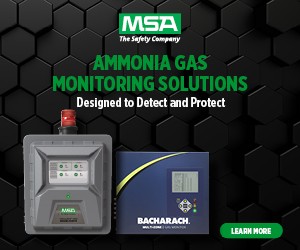RMP Rule Changes Resulting from the SCCAP Rule
The Environmental Protection Agency has issued proposed rule changes to the Risk Management Program Rule as part of the Safer Communities by Chemical Accident Prevention Rule. The final rule provisions took effect on May 10, but there are future phase-in dates for some provisions. Douglas Reindl, a professor of mechanical engineering at the University of Wisconsin-Madison and the founding director of the Industrial Refrigeration Consortium, provided an overview of the rule during IIAR’s annual meeting.
Read More















